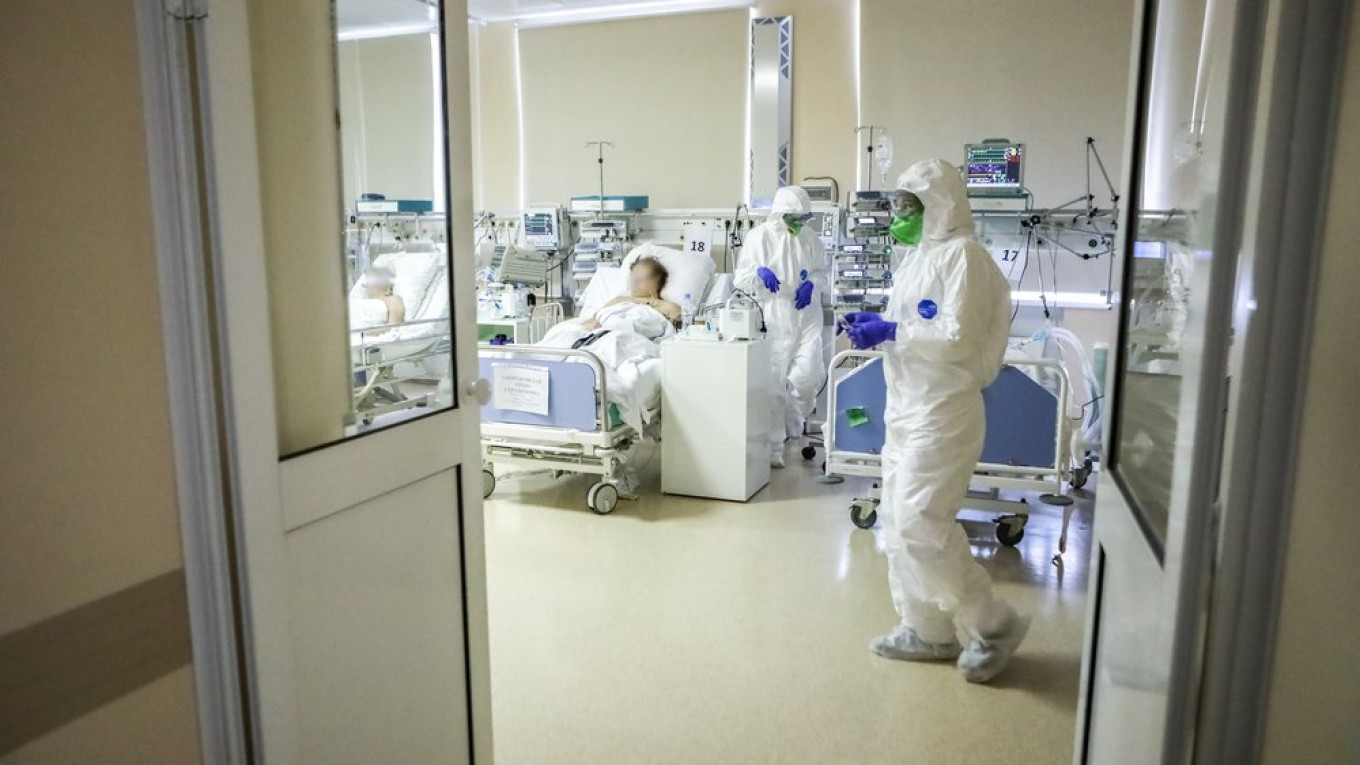Russia’s state statistics agency published higher coronavirus death figures for April than previously reported because it receives more complete data than the national coronavirus crisis center, its chief has said.
The Federal Statistics Service, or Rosstat, more than doubled April’s death toll to 2,712 earlier this month after including cases where Covid-19 may not have directly caused the deaths. Analysis of crisis center data based on its daily counts placed the Covid-19 death toll for April at around 1,150.
“We have a different calculation methodology,” Rosstat chief Pavel Malkov told the RBC news website in an interview published Tuesday.
The crisis center publishes live data “manually entered into the system,” he explained, while Rosstat deals with death certificates that sometimes take up to 45 days to complete following tests.
Russia’s low death toll compared to those in other countries with large coronavirus outbreaks has raised questions about officials possibly underreporting coronavirus deaths. According to official figures, a total of 8,359 Russians have died from Covid-19 as of Tuesday.
Russia has previously attributed its low death figures to mass testing and its practice of carrying out autopsies on each deceased coronavirus patient to determine the exact cause of death.
Malkov defended the accuracy of Rosstat’s data, echoing previous statements following his appointment in late 2018 amid questions surrounding the agency’s independence from the Kremlin as it revised upward GDP figures for previous years. A few months later, Rosstat stopped releasing monthly consumer income data which had been falling for years.
“One of the biggest secrets in statistics is that it’s practically impossible to manipulate,” Malkov told RBC.
“If we’re talking about a qualitative indicator with a developed methodology, then any attempt to affect the final numbers by distorting the input data will become immediately evident,” he said.
A Message from The Moscow Times:
Dear readers,
We are facing unprecedented challenges. Russia's Prosecutor General's Office has designated The Moscow Times as an "undesirable" organization, criminalizing our work and putting our staff at risk of prosecution. This follows our earlier unjust labeling as a "foreign agent."
These actions are direct attempts to silence independent journalism in Russia. The authorities claim our work "discredits the decisions of the Russian leadership." We see things differently: we strive to provide accurate, unbiased reporting on Russia.
We, the journalists of The Moscow Times, refuse to be silenced. But to continue our work, we need your help.
Your support, no matter how small, makes a world of difference. If you can, please support us monthly starting from just $2. It's quick to set up, and every contribution makes a significant impact.
By supporting The Moscow Times, you're defending open, independent journalism in the face of repression. Thank you for standing with us.
Remind me later.






